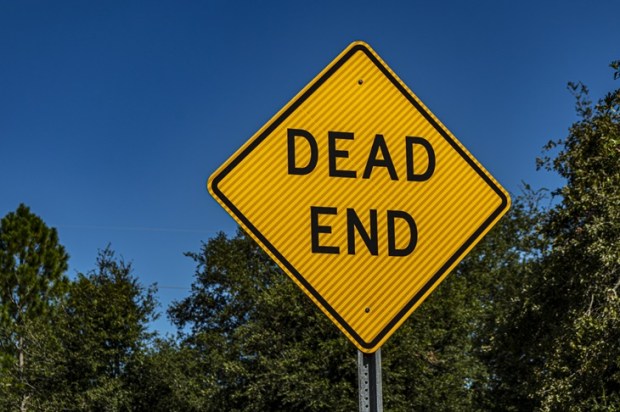I find it ironic that everyone wants to live a long life but nobody wants to get old. Even fewer value old age as a testament to experience.
We value experience when we employ someone to do a job, but we do not value experience in being alive, in the human condition, or decades of experience in living. Why is that? Despite the old maxim, age does not necessarily bring wisdom, but it does bring experience, perspective, and context to many people. All of that is important.
Buying your fifth house is not the same as buying your first. Comforting someone who is going through a divorce for the thirtieth time is not the same as doing it the fifth time, and so on. Experience brings a capacity to gather information, learn perspective, and maybe pick up a bit of wisdom on the way – this is something that we should value, even if others do not.
It is not possible to live a long life without growing older. The years have their own rules and nothing can be done to avoid them beyond a bit of tweaking here and there.
When young women bemoan what they believe is the beginning of a wrinkle, my advice to them is that there is only one way to avoid wrinkles and that is to die. If we are to live a long life, as society believes is a plus, then acceptance of ageing is necessary – as is coming to understand that the important thing is not the number of years one has lived, but the quality of life along the way.
Old age does not have to mean one is decrepit and decaying. Plenty of people are decrepit and decaying at younger ages. Some live very long lives without such physical or mental decay. Nothing is absolute in life beyond the simple reality that there are fewer years ahead and many more behind.
A 101-year-old Canadian woman recently accepted a renewed three-year term to run Toronto Airport. Sure, that is an exception, but it is also a reality. As perhaps is the 103-year-old American woman who ran the 100-metre dash a few years ago. She is 105 now and still running. Is that optimistic reality or realistic optimism? Probably both.
The young have always been the fuel of society, but those with more years under their belt are the backbone.
To have old people we must begin with young people. In a healthy society, both groups are valued. In this era, there seems to be an obsession with youth and dismissal of maturity. Ask yourself, do we have more effective political systems now they are within the realm of our youth? Have younger leaders dramatically improved the countries in which they were elected? There is no great evidence to support that case.
There was a time when older citizens would enter politics because they had the time, and offer their skills and experience to their nation. That is not the case anymore. From the look of things, it is to our great loss. The passion, power, and energy of the young are wonderful, but it requires the ‘braking effect’ of older people. Without their caution, too much youth can be destructive.
Take Wyatt Roy – at 20, he was the youngest Australian elected to Parliament as a member of the Liberal National Party of Queensland (LNP) for Longman. He held his seat for six years. Roy is now 32, and it is hard to see that his youth afforded him any special political powers. It is like child geniuses, who rarely – if ever – achieve the revered status of ‘genius’ as adults.
One thing I have learned in my seven decades is that we understand nothing until we experience it. In doing so, you gain an understanding that is not present in teaching and reading.
If experience counts for nothing, why do we value it when we are hiring people? Someone who has built a mine in the wilds of Africa has a unique experience and skill set. Someone who has carried out a thousand complex brain operations is more trusted than someone with no surgical experience.
There are reasons why children are not allowed to drive, drink alcohol, or vote. It has been known since ancient times that the 7-year-old and the 14-year-old are not the same thing, and that reaching the age of twenty-one brings in most cases, greater levels of mental and emotional maturity. Generally, none of us would want a 12-year-old or even a 21-year-old running the country. They do not have the required maturity. Experience is the slab on which life sits; the ground upon which we can most sensibly plan, because plans can only best be made when they are grounded in experience.
Take the current climate change controversy.
Those who have many decades behind them remember the earlier hysteria about ‘Crown of Thorns’ which was expected to destroy The Great Barrier Reef. It didn’t.
Remember the Club of Rome sceptical pronouncements in the 1970s on the future dooms facing people and planet? That did not happen either.
Our elders view the Climate Change catastrophists more critically, while younger generations are not taught history and beyond current social agendas. They have not experienced the pile of failed predictions of catastrophe that litter humanity’s past. This is why the older you are, the less likely you are to be taken in by the Climate Change catastrophists. Been there, heard that more than once before.
History is thick with failed dogma and doomsayers.
Most younger people have no knowledge of the disasters wrought by systems with noble if not grandiose intentions, like communism. Most have no idea that theories from eugenics are again weaving their way into the social fabric, as they did in the early 20th century. No warning bell rings in young minds as it might in older minds.
And yes, the world changes. Young mothers had a very different experience today than 200 years ago, but the underlying process of pregnancy and birth remains uniquely female. Humans do not change as much as many like to think. A solid understanding of history makes that clear. We are more like we have always been in terms of nature, no matter how much the world around us may have changed.
As the French would have it, ‘Plus ça change, plus c’est la même chose!’
The more it changes, the more it stays the same.
And that is the core problem, that human nature and history are ignored in the name of modern developments – as if the internet or possessing a mobile phone radically changed human nature which has evolved over millennia.
Why then do the over-fifties find themselves locked out of the job market?
Our value on youth is out of balance, leading to a drought of experience. Older Australians are watching their insights go to waste as they are rejected far too soon. Baby Boomers in particular are demonised (of whom the youngest is 57 and the oldest, 75). They are accused of having an exceptional, remarkable, and privileged life in ways never seen before or since. That might come as a surprise to all those who lived it, but this rhetoric has been entrenched as a modern myth. This false resentment makes for immature, easily irritated, and dysfunctional younger citizens. But I am not sure how such attitudes can be changed, given that younger generations are the product of their time, just as the Baby Boomers were.
Is such resentful berating of a generation something new? I wanted to do things differently to my parents on many counts, but I certainly did not resent them or condemn them for failing to achieve something.
One thing is certain, resentment makes it impossible for younger generations to learn from older ones because such poison prevents them from even contemplating that older citizens may have something of value to say.
Perhaps it could be argued that we played a part in their creation and we reap the harvest we have helped to sow. Whatever one makes of it, not much is likely to change with the way the world is heading.
There is always a choice to be made as we live our lives and those who have been gifted with many years of experience, have a responsibility to society still, and an increasingly valuable one.
There is age and there is the stage on which can we work if that is what we choose to do.
Got something to add? Join the discussion and comment below.
Get 10 issues for just $10
Subscribe to The Spectator Australia today for the next 10 magazine issues, plus full online access, for just $10.


























Comments
Don't miss out
Join the conversation with other Spectator Australia readers. Subscribe to leave a comment.
SUBSCRIBEAlready a subscriber? Log in